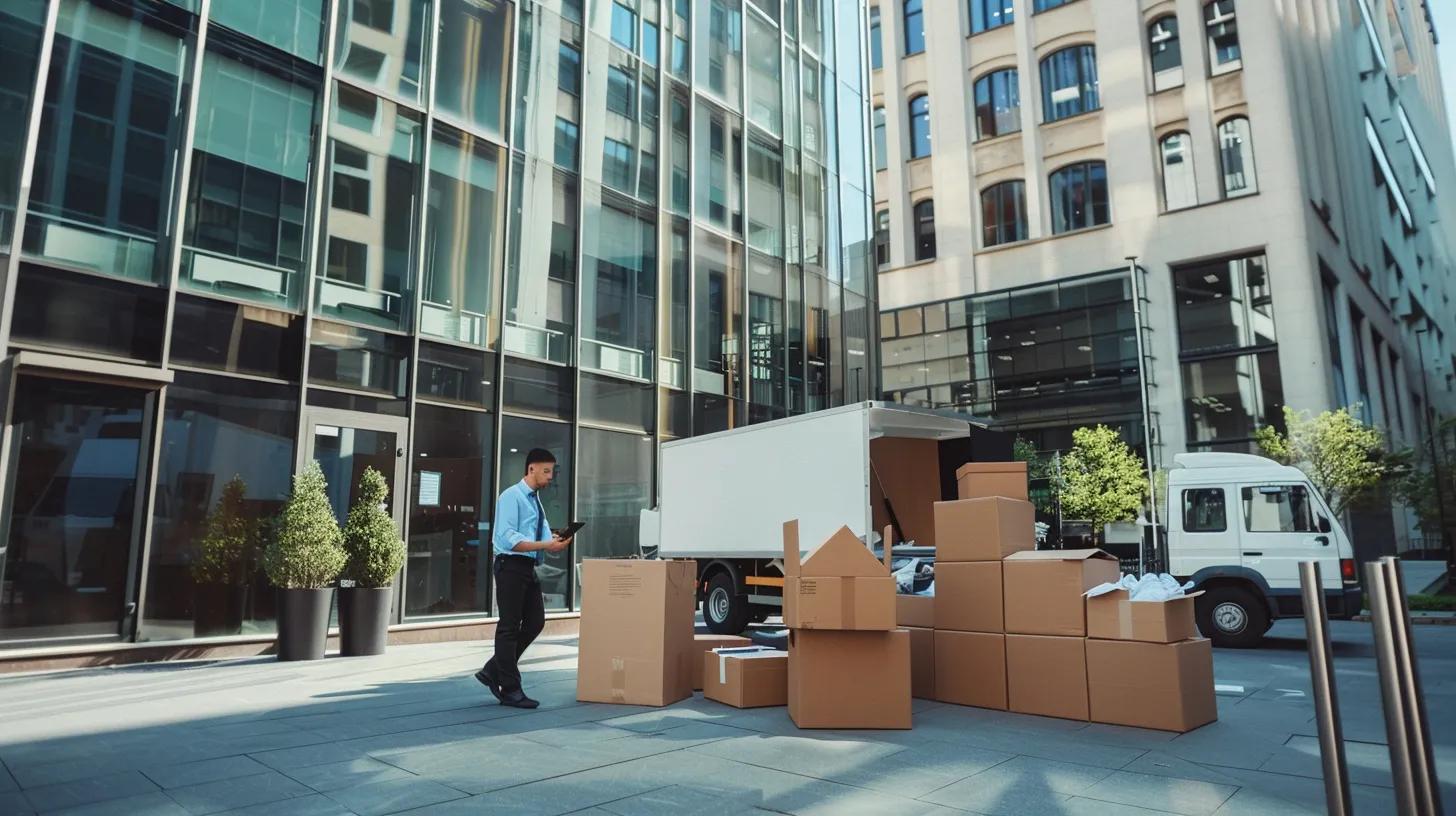Everything that you must know as a resident of Florida to move long-distance with comfort by Alma Moving
Read More


Moving to Florida demands a clear understanding of state regulations, transparent cost planning, comprehensive checklists, reputable movers, lifestyle considerations, consumer protections, and insurance options. This guide delivers actionable insights on:
Florida’s 2025 moving regulations mandate state licensure, minimum insurance coverage, consumer safeguards, and broker limitations to ensure every relocation meets legal and safety standards. Understanding these requirements is the first step toward a compliant, stress-free move in the Sunshine State.
This source provides information on the regulatory body overseeing moving companies in Florida, which is essential for understanding the legal framework.
The Florida Department of Agriculture and Consumer Services (FDACS) and the Federal Motor Carrier Safety Administration (FMCSA) oversee mover compliance by enforcing registration, licensing, and safety protocols. FDACS administers intrastate mover rules under Chapter 507 F.S., while FMCSA regulates interstate long-distance moving with USDOT numbers. This dual oversight guarantees both local and cross-state moves adhere to rigorous standards and consumer protections, paving the way for transparent moving estimates and licensed operations.

All movers in Florida must register annually with FDACS, maintain a physical principal place of business within the state, display a valid mover registration number on all vehicles, and renew their credentials by June 30 each year. These steps confirm legal operation and accountability.
Intrastate Mover Registration Requirements
Meeting these obligations not only secures your compliance status but also bolsters consumer confidence in licensed movers.
Florida moving companies must carry specific insurance policies to protect both customers and workers. Adequate coverage underpins a risk-managed relocation.
These mandated policies safeguard your belongings and guarantee that movers can respond promptly to any damage or injury, reinforcing trust in professional moving services.
This source outlines the mandatory insurance requirements for moving companies in Florida, which is crucial for consumer protection.
Florida law fortifies consumer rights by requiring written estimates, limiting deposits, and penalizing hostage-holding of goods. These measures thwart common fraud tactics and promote transparency.
These protections ensure consumers receive fair practices and legal recourse, driving accountability across the moving industry.
Moving brokers in Florida must register with FDACS, disclose their role clearly, and avoid issuing estimates or contracts directly to customers. Instead, brokers connect customers with licensed carriers and collect a separate broker fee not exceeding five percent of the move cost. This separation between brokerage and carrier functions prevents conflicts of interest and upholds service transparency.
Budgeting for your Florida relocation starts with understanding baseline local and long-distance rates, add-on services, and hidden fees. Accurate cost planning leads to reliable estimates and prevents unexpected expenses.
Packing, crating, and specialty handling services add 15–30% to base moving costs. Services such as furniture disassembly/reassembly, appliance installation, and temporary storage increase labor hours and material costs, elevating overall expenditures but enhancing protection and convenience.
Even licensed movers may charge extra for:
Effective budgeting combines seasonal awareness, service bundling, and multiple estimates:
These strategies empower you to lock in rates, reduce peak-season premiums, and secure a clear financial roadmap for your relocation.
An organized checklist transforms relocation stress into a guided process by mapping tasks, deadlines, and documentation. Following a structured timeline ensures complete readiness on moving day.
Adopt a phased timeline beginning 8 weeks before moving:
Phasing tasks this way provides clear milestones and prevents last-minute oversights as you transition to your Florida home.
Gather sturdy boxes, bubble wrap, packing tape, and labels in advance. Create an inventory spreadsheet with item descriptions and box numbers. Clearly mark fragile items and assign them to a “handle with care” category. This systematic approach streamlines unpacking and damage tracking upon delivery.
Arrange utility disconnection at your origin and connection in Florida at least two weeks before move-in. Notify the U.S. Postal Service of your new address online or at a local post office. Update critical services—electricity, water, internet, and cable—so they’re active by move-in day, avoiding service gaps.
New Florida residents must obtain a Florida driver’s license within 30 days and register vehicles at the county tax collector’s office within the same period. Bring proof of identity, Social Security number, proof of Florida insurance, and vehicle title. Timely compliance avoids penalties and ensures legal operation on Florida roads.
This source provides the necessary steps for new residents to obtain a Florida driver's license, which is a crucial aspect of relocation.
For families, contact your local school district early to understand enrollment paperwork, immunization records, and registration deadlines. When relocating pets, secure current health certificates, schedule microchip updates, and research state regulations for animals—especially breed restrictions or wildlife permits—for seamless pet transitions.
Selecting a reputable mover hinges on verifying licensure, insurance, transparent estimates, and positive customer feedback. Rigorously vetting promotes reliability and service excellence.
Ensure any mover you consider:
These criteria confirm legal standing and financial responsibility to protect your belongings.
Customer testimonials on third-party sites and an A rating from the Better Business Bureau signal consistent service quality and responsive dispute resolution. Reading detailed reviews reveals strengths—such as punctuality or careful handling—and flags potential red flags like aggressive upselling or hidden fees.
Choosing a binding estimate reduces budget uncertainty, while non-binding may offer flexibility if your shipment size changes last minute.
Watch for signs of unreliable providers:
By insisting on clear contracts, licensed credentials, and transparent payment schedules, you guard against fraud and service failures.
With transparent pricing and free, no-obligation quotes, Alma Moving ensures a stress-free experience from origin to destination.
Florida’s diverse cities offer unique benefits and considerations—from economic opportunities to climate challenges. Matching your priorities to the right locale ensures a satisfying new chapter.
Florida’s subtropical climate features hot, humid summers with frequent afternoon thunderstorms, and mild winters. Hurricane season (June 1–November 30) necessitates flexible moving dates and storm-ready packing. Scheduling moves during late winter or early spring can minimize weather-related delays and packing challenges.
Florida’s absence of state income tax can significantly boost take-home pay, especially for high earners. However, homeowners should budget for property taxes and insurance. Incorporate moving expenses into your year-end financial plan to maximize deductions if your relocation is job-related and meets IRS distance tests.
Leverage online job boards, local staffing agencies, and industry networking events to explore employment opportunities in your target city. For families, research school district performance metrics and campus program offerings via state education websites. Early engagement with recruiters and school administrators smooths your transition and integration into the community.
Consumer vigilance paired with legal safeguards prevents fraud and ensures fair treatment. Recognizing common scam tactics and leveraging formal reporting channels empowers you to protect your move.
Spot these tactics by insisting on written binding estimates, verifying FDACS registration, and confirming insurance coverage before booking.
Written estimates clearly define services, costs, and terms—binding or non-binding—preventing arbitrary fee hikes. Detailed contracts outline pick-up and delivery dates, inventory lists, liability limits, and payment schedules. This documentation forms the legal basis for any dispute resolution, protecting your rights throughout the move.
Providing copies of contracts, estimates, and correspondence accelerates investigations and potential restitution.
Effective July 1, 2024, Senate Bill 304 tightened broker and mover licensing, raised minimum liability and cargo insurance thresholds, and mandated digital registration renewals. Florida’s 2025 amendments extend oversight, impose heftier fines for hostage-holding of goods, and require real-time tracking disclosures to consumers. These enhancements strengthen enforcement and elevate industry transparency.
Comprehensive insurance safeguards your possessions from loss or damage while in transit. Florida law specifies minimums, and additional valuation coverage enhances protection.
Upgrading to full value protection or third-party policies reduces financial risk and improves claim settlements, especially for fragile or irreplaceable items.
Request copies of insurance certificates and policy declarations. Confirm expiration dates, coverage amounts, and that the mover lists your shipment as a covered risk. You can also cross-check mover credentials through FDACS’s online license lookup. Validating these details guarantees your mover meets statutory insurance obligations.
Moving to Florida involves navigating state regulations, budgeting accurately, following a detailed checklist, choosing a reputable moving company, understanding lifestyle factors, defending against scams, and securing proper insurance. By applying these guidelines and partnering with a licensed, insured provider, you position your relocation for success. Reach out to Alma Moving today for a free, transparent quote and let experienced professionals handle every aspect of your Florida move with reliability and care.
Where are you moving to?
Here at Alma Moving, we've simplified the quote request process to offer you a hassle-free experience. We aim to deliver a quick and accurate quote that respects both your time and your specific moving needs.
Copyright © 2024. All right reserved.